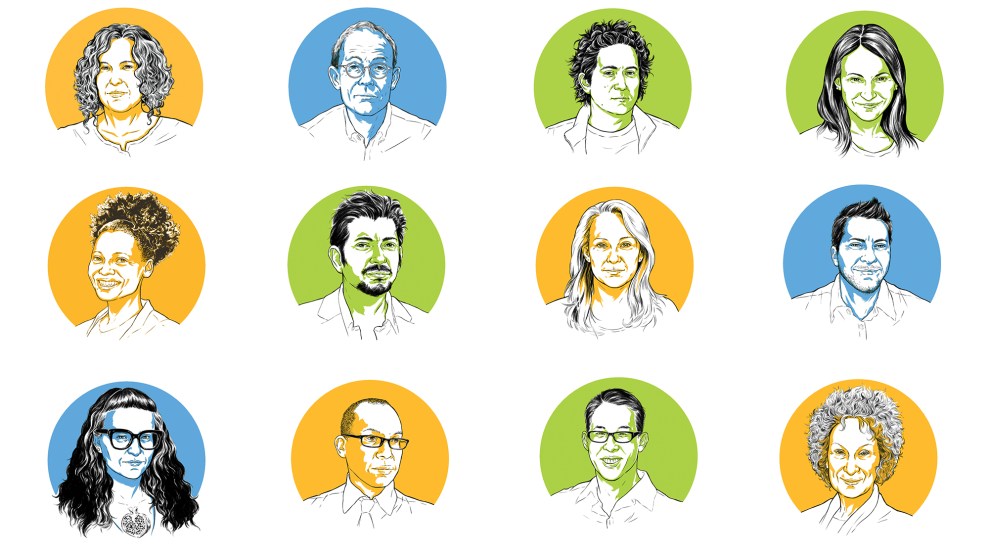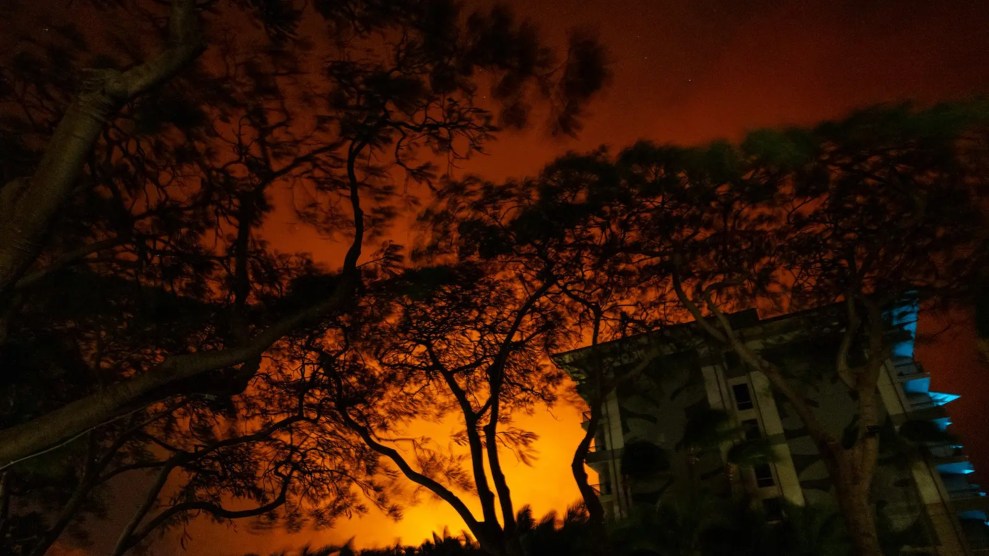
Mother Jones illustration
Many of us turn to books to better understand, or escape, the world around us—and considering how much went down this year, they’ve been an especially handy resource. Books about white supremacy can help to shed light on the violence in Charlottesville and the rise of white nationalism. The New York Times recommends books about Tea Partiers and the white working-class to try to make sense of President Donald Trump’s rise to power. There’s also dystopian literature, which some say have authoritarian themes that parallel the current administration. So we want to know: what book helped you in some way this year?
Perhaps you reread The Handmaid’s Tale in a whole new light, finding it troublingly resonant. Margaret Atwood, the author of the dystopian novel, recently told Mother Jones she finds solace in Lord of the Rings, saying, “It comes out all right at the end. Or sort of all right. So comforting!” For a series we did last year on resistance reading, several other writers shared their books as well, including Gene Luen Yang, author of the Secret Coders book series. He said Silence, by Shusaku Endo, “reminds me that grace can be found even when things are horribly broken.”
Here at Mother Jones, my colleague Tim Murphy says to understand the last nine years of politics, you should catch up on what you didn’t learn in high school by reading Reconstructon: America’s Unfinished Revolution by Eric Foner. “Once you start to see American history through the lens of Reconstruction and Redemption, it’s tough to see anything else,” he explains. Our senior digital editor James West picked up Call Me By Your Name, a gay love story that hit the big screen this year. “With so many #MeToo long-reads and Trump Admin Tick-Tocks to get through every day, it was wonderful to be transported without a care to an Italian Summer in the early-80s, and be invited to fall in love with characters as they fall in love with each other.” He adds, “The movie, for the record, is great. But not nearly as raunchy as the book.”
We’d like to hear from you about the books that’ve helped you through this year. We want to hear about the personal journeys, unexpected escapes, or new revelations reading these books sparked. So share your favorites with us! We’ll follow up by publishing a list of your picks and responses.
We may share your response with our newsroom and publish a selection of stories which would include your name, age, and location. Your email address will not be published and by providing it, you agree to let us contact you regarding your response. We respect your privacy and will not use your email address for any other purpose.
Photo credit: Rose_Carson/Getty
















